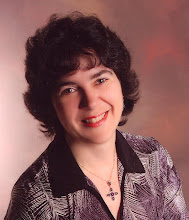Keeping the Faith Alive

Judges 2:10 "Moreover, that whole generation was gathered to their ancestors, and another generation grew up after them, who did not know the Lord or the work that he had done for Israel."
"Anne Robertson!" I turned around at the large reception to see the man who had been my homeroom teacher in the seventh grade. "I thought about you just this morning," he said. "I was looking through old faculty pictures for tonight's celebration and I saw your parents' pictures. I remember you came a year early. Seventh grade and only 11 years old, but smart as a whip. 1970."
I was stunned. I knew many of my teachers very, very well. With parents on the high school faculty for their entire careers, my teachers were often friends of the family as well, and there are many I count as friends today. But my 7th grade homeroom teacher was not on that list. I don't remember even seeing him after I left middle school. But here he was at the 75th anniversary celebration of the founding of Coventry High School remembering me, the year I was in his class, and even my age.
It was an evening of such memories: The best principal on the planet, Jim DiPrete (pictured with me here), who talked about my mother's amazing skills and reliability as a colleague. The oh-so-patient Chemistry teacher and Student Council Advisor who was first taught by my father before he came to teach me. The teachers and students gone but not forgotten. The teacher who had never met me but who was consistently beaten by my father in ping pong.
Those people are why I went--to remember who I was and where I came from. To be among those who carry memories and perspectives of both me and my parents that I can get in no other way. To remember that our school motto was "Ad astra per aspera," "To the stars through difficulty," and to realize how true that was and is.
We all have our own memories, but it takes a community to keep them alive and vibrant. And of course there are those like my mother whose mind and memories have been taken from her. It is the job of her community to remember for her, just as we remember for and with each other. And memories were passed along. The most recent graduates were there along with a woman from the very first graduating class of 1935. We heard about her class and about the classes of the 40's, 50's and every decade since. Our own experiences were reinforced and given meaning and our memories were expanded both forward and backward--putting our lives in a greater context of shared community.
The Bible is full of places where God has people set up markers to hold the memory of events. Sometimes it was a physical marker, like a pile of stones or a special altar. Sometimes it was a festival like Passover or Pentecost. Sometimes it was the instruction to keep telling future generations, as in Deuteronomy 6:4ff where God instructs that the command to love God with all your heart, soul, and strength, be said every morning and every evening and taught to all children. And of course there is the Bible itself, with scores of authors wanting to be sure that events and people and principles were remembered in certain ways.
The above passage from Judges stunned me when I first read it. How was it possible that a generation grew up that "did not know the Lord?" It was a catastrophic failure of community memory. For whatever reasons, a generation stopped sharing their memories, or shared them only with themselves and not with new generations. We know from the Bible itself that there were long stretches of time when the festivals were not celebrated and nobody even knew the Torah existed.
As our culture both inside and outside the church goes through a paradigm shift, it would be all too easy to allow another generation to grow up that "did not know the Lord." That doesn't mean our traditions can't change, but it does mean that if the pile of stones that used to mark an event has crumbled, the stones should not be tossed but should be reformed into something new. We are the keepers of the faith memory, both for those who have set it aside or had it beaten out of them, and for those just being born who do not know.
We need to gather to remember the stories and the people and our own "Ad astra per aspera," which might be translated to faith as "Take up your cross and follow me." When people return to faith communities they should be filled with the memories of why they came, not with flashbacks of why they left. We must help each other remember who and whose we are.
At the anniversary party I learned that my beloved principal was on Facebook and the minute I got home I sent him a friend request. Our churches should inspire us to do the same with Jesus. Rekindle the memory. Share the stories. Teach the children.
Labels: Anne Robertson, Bible, church, Coventry High School, faith, Massachusetts Bible Society, memory, tradition


